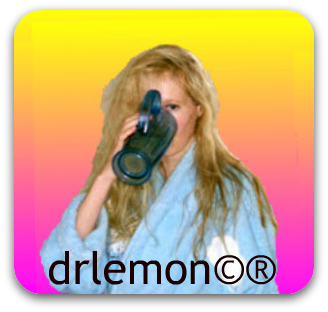Interrogatives are words that form questions. They are the Spanish equivalents of the English "Who, What, When, Where, Why, How and How Much."
Questions formed using interrogatives require more then a "yes or no" answer. They are requesting information.
Dónde |
Qué |
Cuál |
Por qué |
Quién & |
Cómo |
Cuándo |
Cuánto &
|
| Where | What | Which/what | Why | Who & whom | How | When |
How much & How many |
Notice that the Spanish interrogatives all have accent marks. This is important when writing because these words have different meanings without the accent marks.
For example,
- qué means `what', but que without an accent mark on the e means `that';
- cómo means `how', but como without an accent mark on the o means `as' or 'like'.
This is true for the "tilde" as well: Ñ
Let's look at the question ¿Cuántos años tienes? This means literally `How many years do you have?' Años means `years'.
Look up the word ano in a dictionary. It does not mean years. This is a good example of the importance of the tildes and the accent marks. Accented vowels and the tilded Ñ are different letters than unaccented vowels and the N. This means you change the word if you leave them out.
-
Dónde by itself means `where',
as in
- ¿Dónde está tu carro? "Where is your car?"
-
De dónde means `from where', as in
- ¿De dónde eres? "Where are you from?" [From where are you?]
-
Adónde means `to where', as in
- ¿Adónde vas? "Where are you going [to]?"
Cuánto can mean "How Much" but it can also mean How many:
- When cuánto is used as an adjective [how many], it needs to agree with the noun it is modifying. Like all adjectives that end in o, Cuánto has four (4) forms:
- ¿Cuántos libros compras?
- ¿Cuántas mochilas tienes?
- ¿Cuánto tiempo hace que montó a caballo?
- ¿Cuánta cerveza bebes normalmente?
- Cuánto continues to agree even when the noun it is modifying isn't there, but only implied:
- ¿Cuántas
amigasvan a la playa contigo? - When cuánto is used as an adverb [how much], its form doesn't change:
- ¿Cuánto cuesta el texto?
- ¿Cuánto estudias?
Qué vs. Cuál
- Qué means "what" when we need to define something:
- ¿Qué es esto? What is that?
- ¿Qué haces? What are you doing?
- Cuál means "which" but it also can function as "what". We use Cuál to mean "what" when we are identifying something:
| ¿Cuál es su nombre? | What is your name? |
If you asked, ¿Qué es
su nombre?, you would be asking what type or kind of name
do you have - Irish? English? Cuban?
| ¿Cuál es su número de teléfono? | What is your telephone number? |
--meaning, "of all the phone numbers there are, which is yours?"
If you asked, ¿Qué es su número de teléfono?, you would be asking what is a telephone number (it's a series of numbers one enters into a telephone in order to call another person's telephone.
There is a basic rule of thumb that we use Qué with nouns and Cuál with verbs:
| ¿Qué materias estudias este semestre? | ¿Cuáles son tus clases este semestre? |
However, as grammar references guides will note, sometimes cuál is used as an adjective in Latin American countries in everyday conversations:
| ¿Qué comida vas a probar? | ¿Cuál comida vas a probar? |

